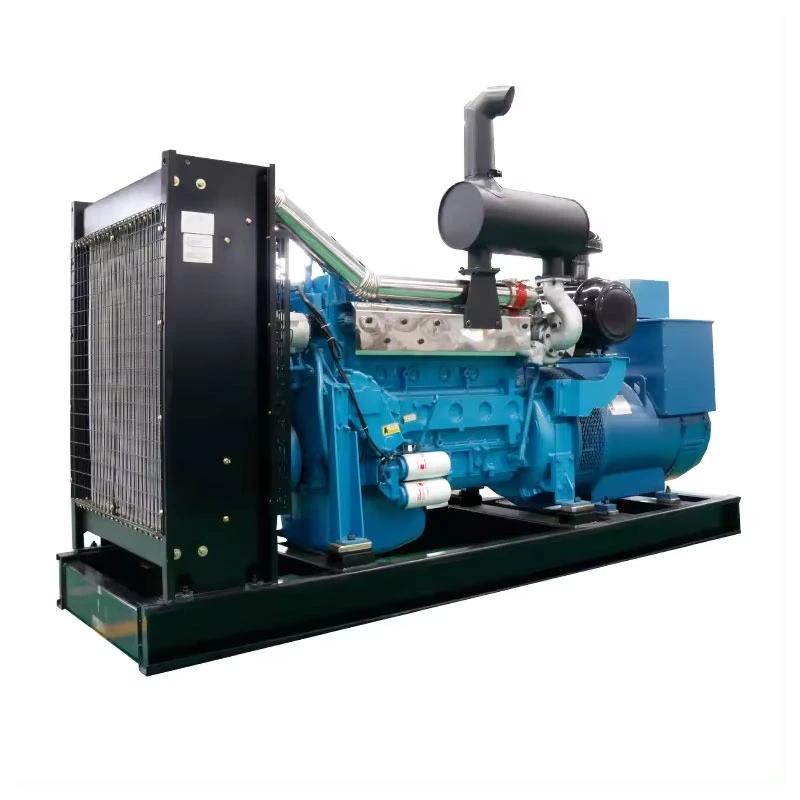Diesel Generator for Product Validation Ensuring Reliability and Performance
Introduction In the world of industrial and commercial applications, product validation is a critical process that ensures the reliability, performance, and safety of a product before it is released to the market. One essential tool in this process is the diesel generator, a versatile and efficient power source that plays a crucial role in testing and validating a wide range of products. In this article, we will explore the importance of diesel generators in product validation, their key features and benefits, as well as best practices for utilizing them effectively. The Role of Diesel Generators in Product Validation Product validation is a complex and multi-faceted process that involves testing a product under various conditions to ensure that it meets the required specifications and standards. One of the key components of product validation is the testing of the product's performance under different power supply scenarios, which is where diesel generators come into play. 75kw diesel generator are widely used in product validation processes due to their reliability, durability, and efficiency. These generators are capable of providing a consistent and stable power supply, making them ideal for testing products that require a continuous power source. Whether it is testing the performance of electronic devices, industrial machinery, or automotive components, diesel generators play a crucial role in ensuring that the product functions as intended under real-world conditions. Key Features and Benefits of Diesel Generators 1. Reliability: One of the primary reasons why diesel generators are preferred for product validation is their reliability. Diesel engines are known for their robust construction and durability, making them highly dependable even in the most demanding conditions. This reliability is essential for ensuring that the product validation process runs smoothly without any interruptions due to power outages or fluctuations. 2. Efficiency: Diesel generators are also highly efficient in converting fuel into electricity, making them a cost-effective option for powering testing equipment during product validation. The fuel efficiency of diesel engines helps reduce operational costs and allows for extended testing periods without the need for frequent refueling. 3. Power Output: Diesel generators are capable of providing a high power output, making them suitable for testing products that require a significant amount of energy. Whether it is testing heavy machinery, large-scale industrial equipment, or power-hungry electronic devices, diesel generators can deliver the power required to validate the performance of these products effectively. 4. Portability: Many diesel generators are designed to be portable, allowing them to be easily transported to different testing locations. This portability is a key advantage in product validation, as it enables testing to be conducted on-site or in remote locations where access to a reliable power supply may be limited. 5. Durability: Diesel generators are built to withstand harsh operating conditions, making them well-suited for use in product validation environments where equipment undergoes rigorous testing. The rugged construction of diesel generators ensures that they can withstand continuous use and operate reliably over an extended period. Best Practices for Utilizing Diesel Generators in Product Validation To ensure the effective use of diesel generators in product validation, it is essential to follow best practices that maximize their performance and reliability. Some key considerations include: 1. Proper Sizing: Selecting a diesel generator with the appropriate power output is crucial for ensuring that it can meet the energy requirements of the testing equipment. An undersized generator may lead to power shortages, while an oversized generator can result in inefficiency and increased fuel consumption. 2. Regular Maintenance: Like any mechanical equipment, diesel generators require regular maintenance to ensure optimal performance. Scheduled inspections, oil changes, and filter replacements are essential to keep the generator running smoothly and prevent unexpected breakdowns during product validation. 3. Fuel Quality: The quality of fuel used in a diesel generator can have a significant impact on its performance and longevity. It is important to use clean and high-quality diesel fuel to prevent issues such as clogging of fuel filters or injector problems that can affect the generator's operation. 4. Environmental Considerations: When using diesel generators for product validation, it is important to consider the environmental impact of their operation. Proper ventilation, exhaust system maintenance, and compliance with emissions regulations are essential to minimize air pollution and ensure a safe working environment. 5. Backup Power Source: In product validation scenarios where uninterrupted power supply is critical, it is advisable to have a backup power source in place to prevent testing disruptions in case of generator failure. This could be a secondary diesel generator, battery backup system, or connection to a reliable grid power source. Conclusion  Diesel generators play a vital role in product validation by providing a reliable and efficient power source for testing equipment under various conditions. Their reliability, efficiency, and high power output make them an ideal choice for ensuring that products meet the required specifications and standards before they are released to the market. By following best practices for utilizing diesel generators in product validation, manufacturers can conduct thorough and accurate testing processes that validate the performance and reliability of their products effectively.
Diesel generators play a vital role in product validation by providing a reliable and efficient power source for testing equipment under various conditions. Their reliability, efficiency, and high power output make them an ideal choice for ensuring that products meet the required specifications and standards before they are released to the market. By following best practices for utilizing diesel generators in product validation, manufacturers can conduct thorough and accurate testing processes that validate the performance and reliability of their products effectively.